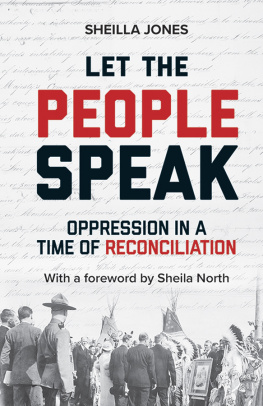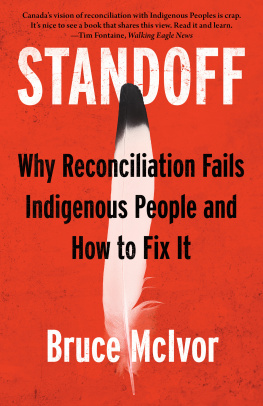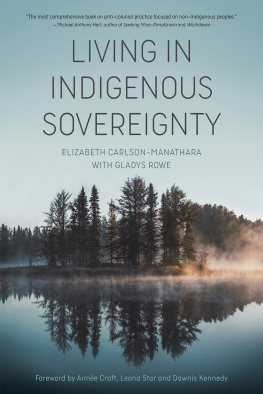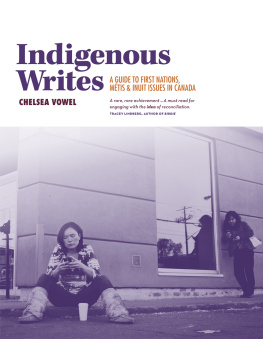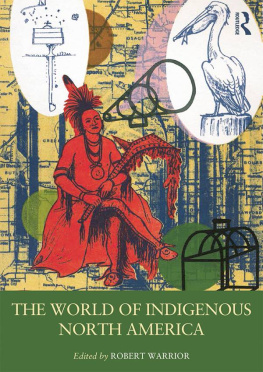Let the People Speak
first published 2019 by J. Gordon Shillingford Publishing Inc.
2019 Sheilla Jones
Cover design by Doowah Design.
Photo of Sheilla Jones and Sheila North by Cheryl Struss Photography.
The foreground image depicts King George VI and Queen Elizabeth greeting chieftains of the Stoney Indian Tribe, who have brought a photo of Queen Victoria, during the royal visit to Canada in 1939. The treaties were originally signed by representatives of the British Crown acting in Queen Victorias name. Library and Archives Canada, National Film Board, accession number 1971-271 NPC, PA-131185.
The background image is a section from the original Treaty 1 document, signed on August 3, 1871 by Chippewa and Swampy Cree Tribes and Commissioner Wemyss M. Simpson for Queen Victoria, which included a $3 annuity for every band member. Library and Archives Canada, reproduction copy number e004156539, IT 255.
We acknowledge the support of The Canada Council for the Arts and the Manitoba Arts Council for our publishing program.
All rights reserved. No part of this book may be reproduced, for any reason, by any means, without the permission of the publisher. This book is fully protected under the copyright laws of Canada and all other countries of the Copyright Union and is subject to royalty. Changes to the text are expressly forbidden without written consent of the author.
ISBN 978-1773240-72-5 (epub)
Library and Archives Canada Cataloguing in Publication
Title: Let the people speak : oppression in a time of reconciliation / Sheilla Jones.
Names: Jones, Sheilla, author.
Description: 1st edition.
Identifiers: Canadiana 20190137088 | ISBN 9781927922569 (softcover)
Subjects: LCSH: Indigenous peoples Canada Politics and government. | LCSH: Indigenous peoples
Canada Government relations. | CSH: Native peoples Canada Politics and government. | CSH: Native
peoples Canada Government relations.
Classification: LCC E98.T77 J66 2019 | DDC 323/.04208997071 dc23
J. Gordon Shillingford Publishing
P.O. Box 86, RPO Corydon Avenue, Winnipeg, MB Canada R3M 3S3
www.jgshillingford.com
This book is dedicated to Jean Allard, a tenacious man who, chained to a statue of Louis Riel, came up with the idea of modernizing treaty annuities as a means of empowerment for ordinary Indigenous people, an idea he never let die.
Contents
FOREWORD
I was raised in Bunibonibee Cree Nation, an isolated community in northern Manitoba filled with mostly other Cree people, and it shaped who I am. It structured how I think. When I was growing up, I thought the rest of the world was just as nurturing and loving as my own community a place where all people helped each other in times of need, a place where people respected each other and shared what they had with each other. Bad things sometimes happened, but somehow it always felt like there was more good than bad.
However, in some ways it was all a facade. My parents, one a residential school survivor and the other a day school survivor, made a choice to be the best parents they could be in spite of what they experienced as children who grew up in a world that was being colonized in spite of their parents, grandparents and great-grandparents being told that everything they knew about themselves and their world was wrong and unclean.
There are many other Indigenous families who have been irreparably damaged by the intentional undermining and derogation of their culture and identity. There is ample evidence of that in urban areas, where many people are openly struggling to survive on the streets and in poorer neighbourhoods, as well as in too many First Nations reserves in Canada.
I am thankful for my resilient parents, who, like many other Indigenous parents, found a way to shield my siblings and me from the hardships of life, at least in our formative years. Because of parents like them, we are seeing many healthy Indigenous people who are thriving today, in spite of what happened to them and their families. It is important to remember that all families, including Indigenous families in this country, want what many Canadians already enjoy a good life. A life that allows us to care for everyone in our families and communities in the most positive and healthy way.
But right now, in this bountiful country we now know as Canada, the original people of this land, with a few exceptions, are living in Third World conditions, treated with disdain and disrespect and forced to live in abject poverty. The questions we all need to ask ourselves are the four ws and the h! What, When, Where, Why and How.
Let the People Speak: Oppression in a Time of Reconciliation will start you on a path to answering those questions for yourself where you as a Canadian citizen fit into all of this, and how you may find a way to help change the course of history, starting from where you are. If you are hoping our country is truly that place where everyone is getting what they need to be healthy contributing members of society, you should be involved.
Let the People Speak sets out in plain English what a treaty is and what the sacred agreements signed generations ago have to do with what is happening today. The sacred agreements signed between the British Crown and the First Nations of this land agreements that essentially formed what Canada is today laid out how original inhabitants and newcomers should live peaceably with one another. You will clearly see how the acknowledgement of sharing the land and seeing the treaties fulfilled can help this country live sustainably and be the beacon of human rights protection it portrays itself to be.
Indigenous history is finally being taught in many schools in Canada and even shared at dinner tables and book club meetings. But not everyone has had the chance to learn about the remarkable history of the First Peoples and how things came to be the way they are today. Sheilla Jones does an incredible job summarizing federal Indigenous political history in Canada over the past 150 years, with a particular focus on the past fifty years. Reading the results of her in-depth research on the subject, including how treaties come into play, will help get you up to speed on what you need to understand if you are interested in being part of a country that cares for all of its people. Others have written extensively on historical Indigenous issues. The Royal Commission on Aboriginal Peoples contributed five volumes; the Truth and Reconciliation Commission illuminated a sorry chapter in Canadas treatment of Indigenous children, and the Missing and Murdered Indigenous Women and Girls Inquiry Report has added more. The question still to be answered: what do we do to keep old patterns from repeating themselves?
The place I came from is what Canada can and should be for all of us a country that cares for all of its citizens, willingly helps others in times of need, and knows the value of sharing. But more than that, the country I would like to see for my children, grandchildren and great-grandchildren is most likely the same country you want to see, too. A country where all children receive the best education that allows them to compete for opportunities and become the self-sustaining citizens we all want to be, while understanding the importance of helping others who struggle.
The discussion about raising treaty annuities explored in this book can lead to a real path of reconciliation, one that does not oppress anyone. While First Nations citizens are resilient and have the ability to overcome great tragedies, their voices in their own homelands are not being heard. We hear some of the leaders and advocates who know how to get media attention, but the average citizen who is the most impacted by Canadas colonial policies is largely ignored. To me, I see the strength and winds of change contained in these voices.

